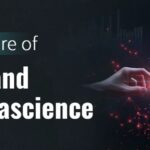As AI is driving the world forward, the future of data science can be considered more than just coding and building models. Data scientists are more often timely-enabling the best decision making, demonstrating the trustworthiness of data, and enabling access to data-based insights within organizations. As per McKinsey, “Generative AI is transforming from a tool that performs tasks to an intelligent collaborator that can automate complex processes and provide proactive insights. Data scientists are now working alongside AI agents, guiding their application to solve real-world business challenges.” Let’s explore how AI is transforming the data science future.
The Shift from Technical Specialists to Strategic Partners
Data science was previously dominated by a technical and academic, and PhD-centric group of trained specialists, who possessed detailed knowledge of statistics. These specialists built models, wrote code for algorithms, and conducted complicated experiments.
Many technical workloads that were once manual have now been automated or assisted by advanced AI tools and cloud platforms. Tools like GitHub Copilot and ChatGPT provide code generation capabilities, and AWS SageMaker and Google Vertex AI provide synthetic dataset generation, model testing, and model deployment capabilities at scale. Even Tableau’s version of AI capabilities, combined with Power BI and Copilot, is changing how visualizations are generated and insights are formed, making them faster and easier.
This enables data scientists to spend less time on repetitive tasks and instead focus on how data can shape and change business strategy, solve difficult/complex problems, and influence the responsible use of insights generated using AI methodologies within organizations.
A New Era of Data Driven Decision Making
The increasing presence of AI allows organizations to take data driven decision making beyond the specialized teams. Employees no longer wait for analysts to compile dashboards; they simply interact with their AI assistants.
Picture a sales manager saying, “How did the last quarter’s campaign impact revenue in the western region?” and immediately receiving a tidy, AI-generated report. Insights become readily available to everyone using these tools, reducing bottlenecks and accelerating response time.
Data scientists, in turn, will put their effort into validating outputs, testing assumptions, and ensuring that business leaders act on insightful findings that are accurate and reliable. In the end, there is a culture where evidence informs decisions at every level of the organization.
The Expanding Importance of Data Visualizations
As artificial intelligence continues to evolve and develop, data visualizations are becoming the foremost method and manner in which information is communicated and interpreted. A simple prompt obtains immediate graphs, charts, or even dashboards that reveal complex answers consisting of many dimensions.
Visuals alone are insufficient. There needs to be a data scientist to verify that the visuals match the real world, ensure that the data sources are reputable, and identify limitations that exist and are explained clearly. Data scientists will be positioned to serve as interpreters of the raw output into a useful story and directing decisions.
There may be even less distinction between analysts and data scientists, but certainly, the data science teams would be given accountability for ensuring trustworthiness, clarity, and accuracy.
Building Trust Through Ethics and Governance
- An AI-powered future of data science will not just be about faster analytics but about establishing a trusted system. Protecting data quality will mean ensuring that datasets are accurate, comprehensive, and unbiased so that AI models don’t produce inaccurate results.
- Ensuring ethical protections will also involve having transparent algorithms and fairness checks to prevent discrimination or unintended harm. Organizations also must raise data literacy so employees of all levels can interpret, provide context, and make informed decisions based and AI-derived insights/posts.
- To truly build stakeholder confidence, organizations must enhance governance and security, specifically ensuring AI systems are governed by regulations, data privacy is maintained for sensitive data, and they are operating with accountability.
How the Role of Data Scientists Will Evolve
The evolution of data science is not going to remove the critical thinking capabilities of humans, but will only further expand what is possible for data scientists. Data scientists will embrace new responsibilities, such as:
- Refining questions and objectives to tackle real business problems.
- Translating abstract numbers into a narrative for decision makers.
- Approach experimentation and testing new ideas with creativity.
- Ensuring outputs from AI are ethical, transparent, and trustworthy.
Preparing Organizations for the AI Powered Future
Organizations keen on taking advantage of the new environment should start preparing now, which can be done in the following ways:
- Supporting data scientists in making the transition from using AI tools as a tool to as a partner, not as a competitor.
- Investing in AI platforms that take care of security and compliance and have governance built in.
- Equip employees with data science certification, like USDSI offers globally recognized certifications such as the Certified Data Science Professional (CDSP™), Certified Senior Data Scientist (CSDS™), and Certified Lead Data Scientist (CLDS™), covering beginner to leadership levels with a focus on practical applications and industry readiness.
- Harvard University’s Data Science Professional Certificate provides rigorous training in statistics, machine learning, and real-world data problem solving, while,
- Columbia University’s Certification in Data Science emphasizes analytics, visualization, and predictive modeling with a strong academic foundation.
Looking Ahead
The goal of AI and data science is not to replace talent with machines but to enhance human talent. Data scientists will devote time to more strategic, interpretative, and ethical aspects of their expertise and allow AI to perform the repetitive aspects of their role.
For organizations, the opportunity is clear enough: to utilize data rationality and decision making, trust what their data visualizations show them, and prepare for the future of data science.

